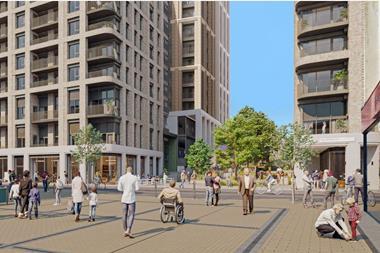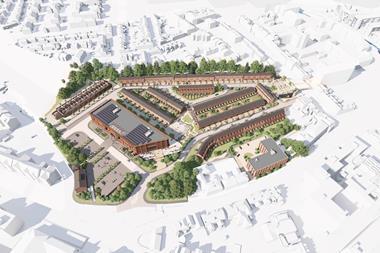The pressure is on housing developers like never before. The government is calling for 300,000 new homes to be built every year until at least 2025. This would be the fastest rate of building since the 1950s.

In many respects, this is a great opportunity for developers to create a legacy of quality homes for generations to come, but there are dangers too. We must not end up repeating the mistakes of the 1960s and 1970s, when too many estates were ‘thrown up’ with little regard to design or community engagement. The ethos was to build quickly and cheaply, sometimes using untried technologies.
To be successful, regeneration must put people first. Even in so-called ‘problem estates’ there are people who love where they live and have strong ideas about how their new homes should look and feel. Developers must learn to work with residents, reaching out at an early stage to involve them in the design process. Collaboration with all those having an interest in the outcome is key.
Done well it can give your scheme a flying start. For instance, in Enfield in London, 84% of residents on the Alma Estate voted in favour of our regeneration plans thanks to extensive consultation in partnership with the local authority. This level of support is vital when you are setting out to build nearly 1,000 homes over 10 years.
”People not quotas must come first as we build places people love”
As well as building new homes, developers need to rebuild trust. If we truly believe we have a role in making people’s lives better and public bodies are to rely on us then quality and integrity must be at the heart of everything we do. Our industry is under more scrutiny than ever; well-documented problems with the build quality of some new homes have dented reputations and politicians are watching us closely.
Step up to the plate
Sir Oliver Letwin’s interim report of his review for the government looking at build-out rates largely exonerated builders over issues such as land banking, but the pressure is still on. We must step up to the plate.
Of course, this will not be easy. As the Letwin report acknowledged, we have an ageing workforce and already suffer shortages in many skills. Replacing these workers, let alone increasing their number, will be a significant challenge. However, we cannot allow these problems to become an excuse to cut corners in order to meet targets. Instead, we need to continue to invest in people and their training, from taking on more apprentices and graduates, right through to developing our leadership potential. We need to make our businesses desirable places to work to attract and retain talent within the industry.
Research shows that early investment in infrastructure and planning produces greater value in the future. At Rochester Riverside in Kent, we have embarked on a 12-year scheme to build 1,400 new homes along with new public and commercial spaces. In the first three phases, as well as hundreds of homes, we’re building a hotel and shops to ensure this brownfield site enjoys an economic regeneration as well as a physical one.

Often sites have hidden value that can be unlocked if the right vision is brought to bear. Experienced developers have the skills to see what might not be obvious to others, so it is imperative we are bold when we reach out to potential partners, particularly if they are cash-strapped.
For instance, in west London we are working with the local council to create nearly 300 new homes, 50% of which will be affordable, on the site of Hounslow Town Primary School. We recognised the site’s potential and showed how it could be achieved with efficient land use. The new school will be built first with the houses and apartments to follow. In the end, the community will benefit from extra school places and new places to live.
Now more than ever we must rely on our skills from design and planning to collaboration and construction to ensure we do not squander this opportunity to revive and expand the UK’s housing stock. People not quotas must come first as we build places people love.
Rebecca Worthington is group CFO for Countryside
Digital-only issue: RESI, steady, go
- 1
- 2
- 3
- 4
- 5
 Currently reading
Currently readingBuilding quotas put communities at risk
- 6
- 7
- 8
- 9
- 10







































No comments yet